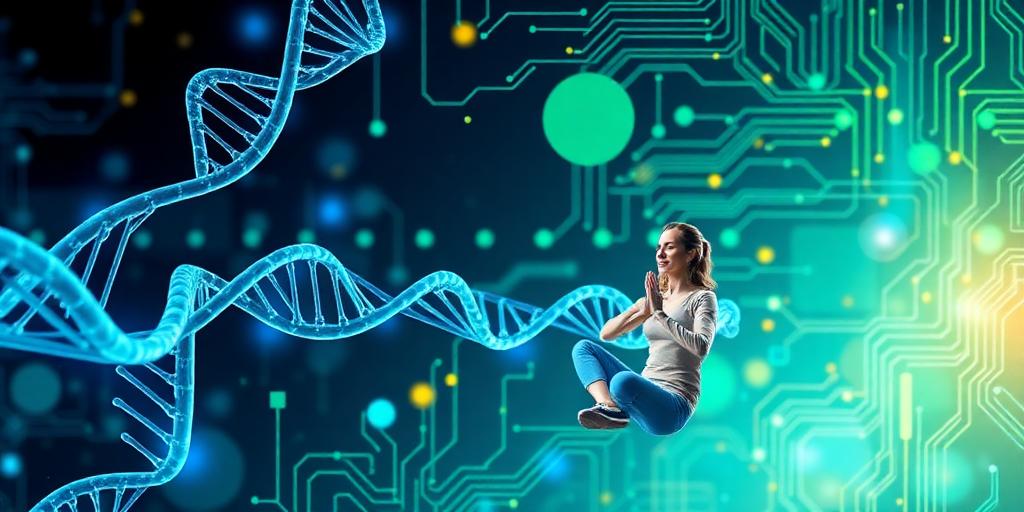Biohacking: Optimizing Health and Performance
Biohacking, also known as DIY biology, is a rapidly growing movement focused on optimizing human health and performance through a combination of biology, technology, and lifestyle adjustments. Individuals, often referred to as biohackers, employ various techniques to understand and enhance their bodies, pushing the boundaries of traditional wellness. This article explores the trend of biohacking, its methodologies, and its implications for modern lifestyles.
Understanding Biohacking
Biohacking encompasses a wide range of practices, from nutrition and exercise optimization to advanced technological interventions. The core principle is to gain deeper insights into one's biology to make informed decisions about health and well-being. This involves self-experimentation, data collection, and a willingness to adopt innovative approaches.
Key Areas of Biohacking
Nutrigenomics:
- Focuses on understanding how genes interact with nutrients.
- Involves personalized diets based on genetic predispositions.
- Aims to optimize nutrient intake for enhanced health outcomes.
Nootropics:
- Use of supplements and drugs to enhance cognitive functions.
- Includes substances like caffeine, L-theanine, and more advanced compounds.
- Aims to improve memory, focus, and overall mental performance.
Wearable Technology:
- Utilizes devices like fitness trackers and smartwatches to monitor physiological data.
- Provides insights into sleep patterns, heart rate variability, and activity levels.
- Enables data-driven decisions for lifestyle adjustments.
Cryotherapy:
- Exposure to extremely cold temperatures for short periods.
- Aims to reduce inflammation, improve recovery, and boost metabolism.
- Often used by athletes and individuals seeking performance enhancement.
Red Light Therapy:
- Uses low-level red light to stimulate cellular function.
- Aims to improve skin health, reduce pain, and enhance muscle recovery.
- Becoming increasingly popular for its non-invasive nature.
Benefits of Biohacking
- Enhanced Physical Performance: Biohacking techniques can lead to improved strength, endurance, and recovery times.
- Improved Cognitive Function: Nootropics and brain training can enhance memory, focus, and mental clarity.
- Better Sleep Quality: Monitoring and optimizing sleep patterns can lead to more restful and rejuvenating sleep.
- Reduced Stress and Anxiety: Practices like mindfulness and meditation, combined with biofeedback, can help manage stress levels.
- Personalized Health Strategies: Tailoring interventions to individual biology ensures more effective and targeted health improvements.
Considerations and Risks
While biohacking offers numerous potential benefits, it's essential to approach it with caution and awareness.
- Lack of Regulation: The biohacking industry is largely unregulated, leading to potential safety concerns with certain products and practices.
- Ethical Considerations: Genetic manipulation and advanced technological interventions raise ethical questions about human enhancement.
- Potential Side Effects: Some biohacking techniques may have unintended side effects or long-term consequences.
- Importance of Professional Guidance: Consulting with healthcare professionals is crucial to ensure safety and efficacy.
The Future of Biohacking
As technology advances and our understanding of biology deepens, biohacking is poised to become even more sophisticated and accessible. The future may see more personalized and precise interventions, driven by AI and machine learning. However, it's crucial to proceed responsibly, ensuring that ethical considerations and safety remain paramount.
Conclusion
The trend of biohacking represents a proactive and personalized approach to health and performance optimization. By leveraging biology, technology, and self-experimentation, individuals can unlock new levels of well-being. However, it's important to approach biohacking with caution, awareness, and professional guidance to ensure safe and effective outcomes.









